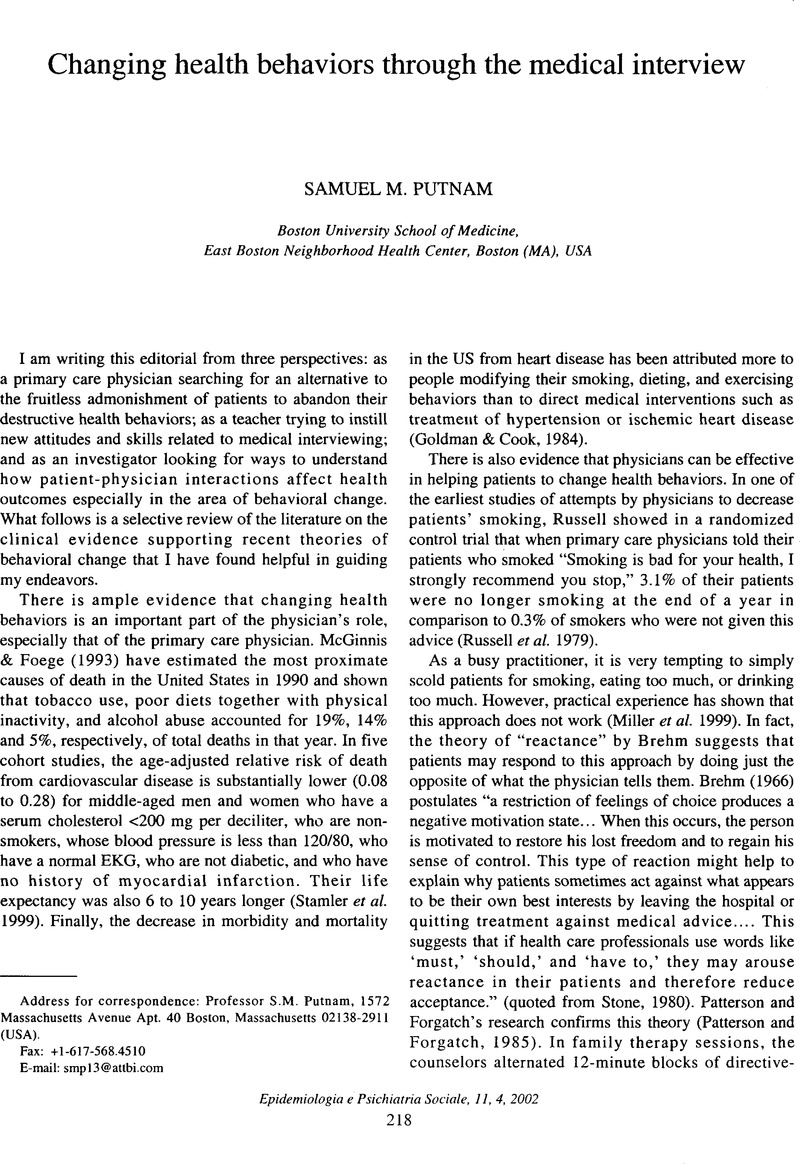Crossref Citations
This article has been cited by the following publications. This list is generated based on data provided by Crossref.
Stiles, William B.
2002.
Description versus evaluation of medical interviews.
Epidemiology and Psychiatric Sciences,
Vol. 11,
Issue. 4,
p.
226.





